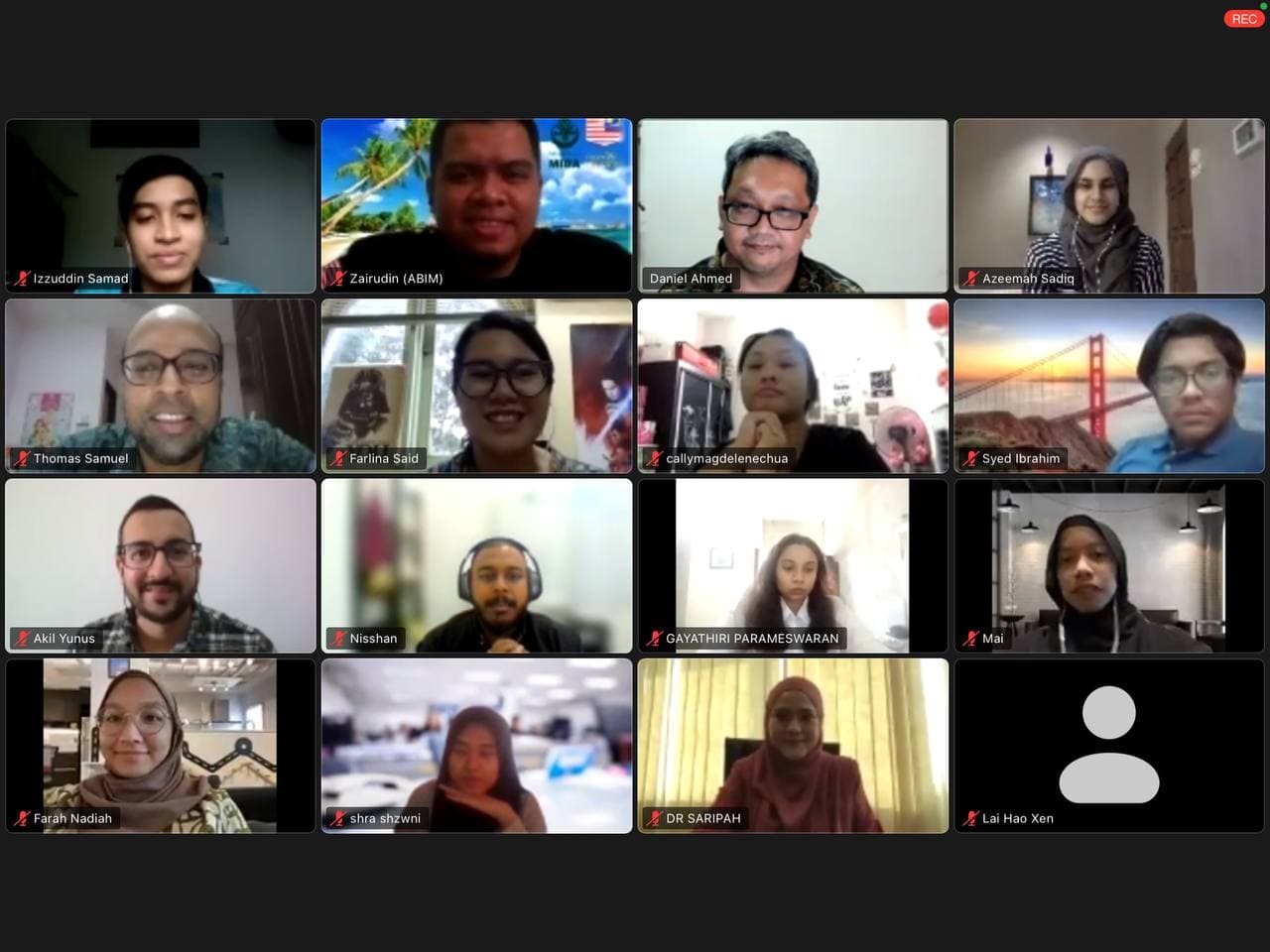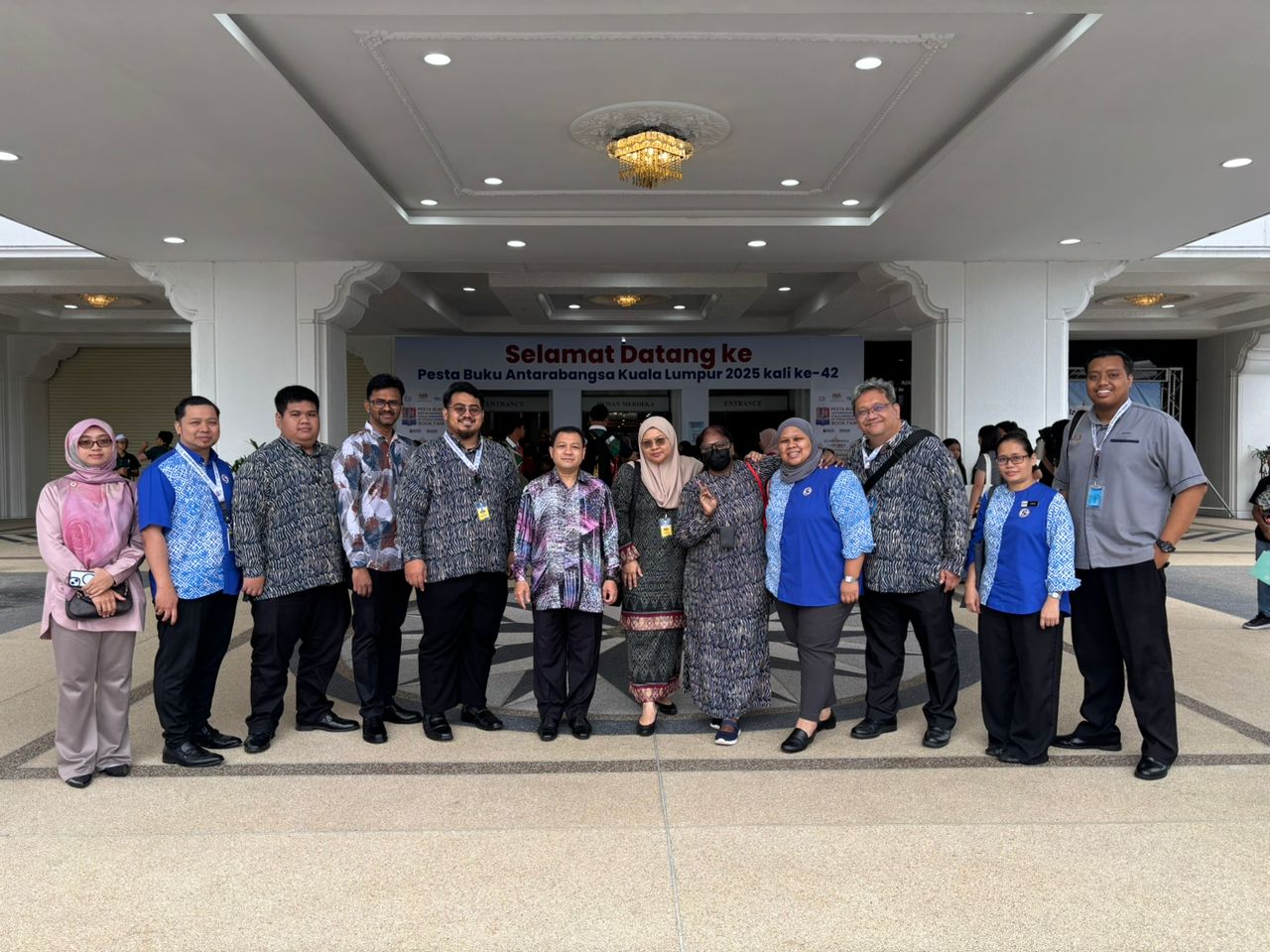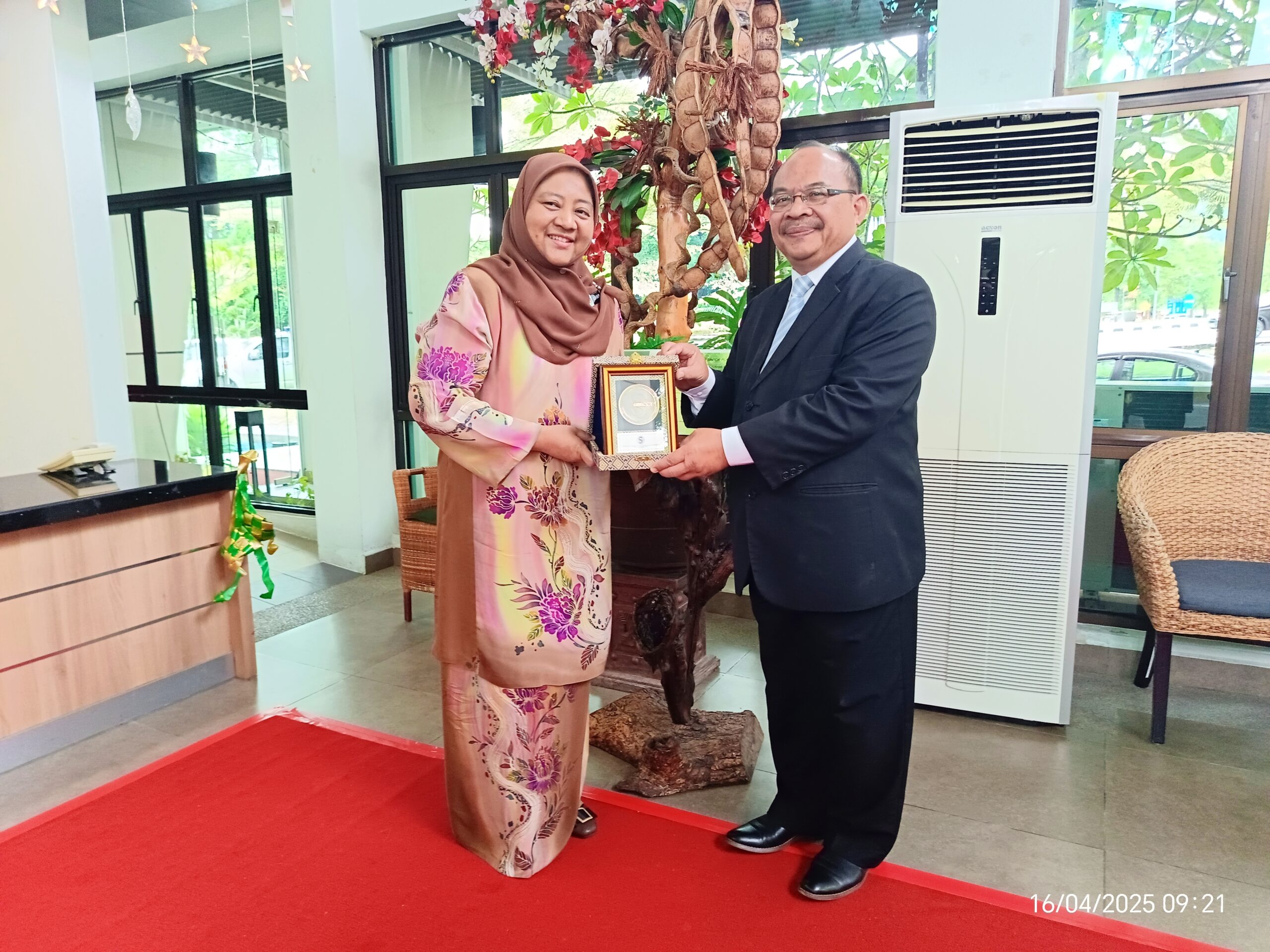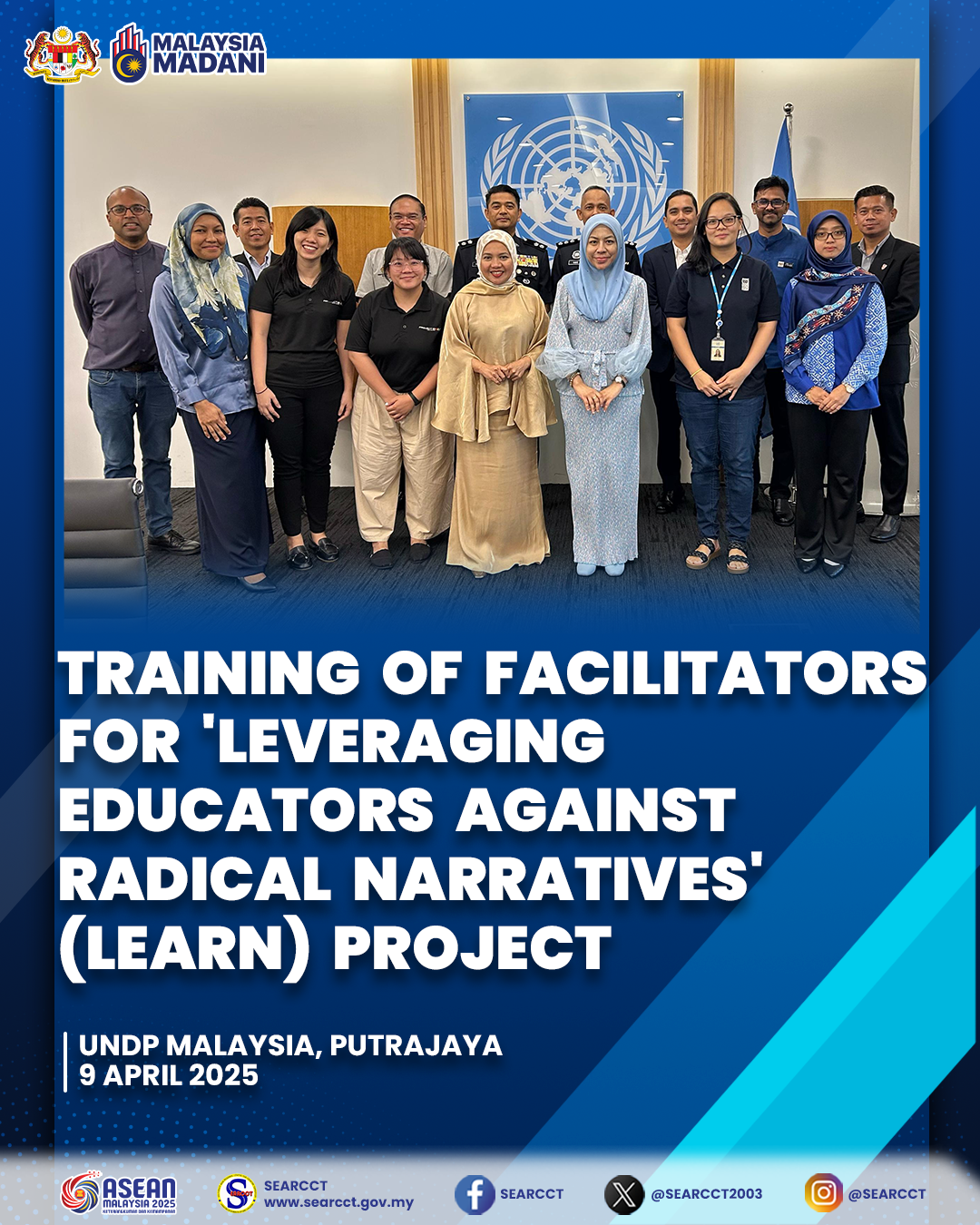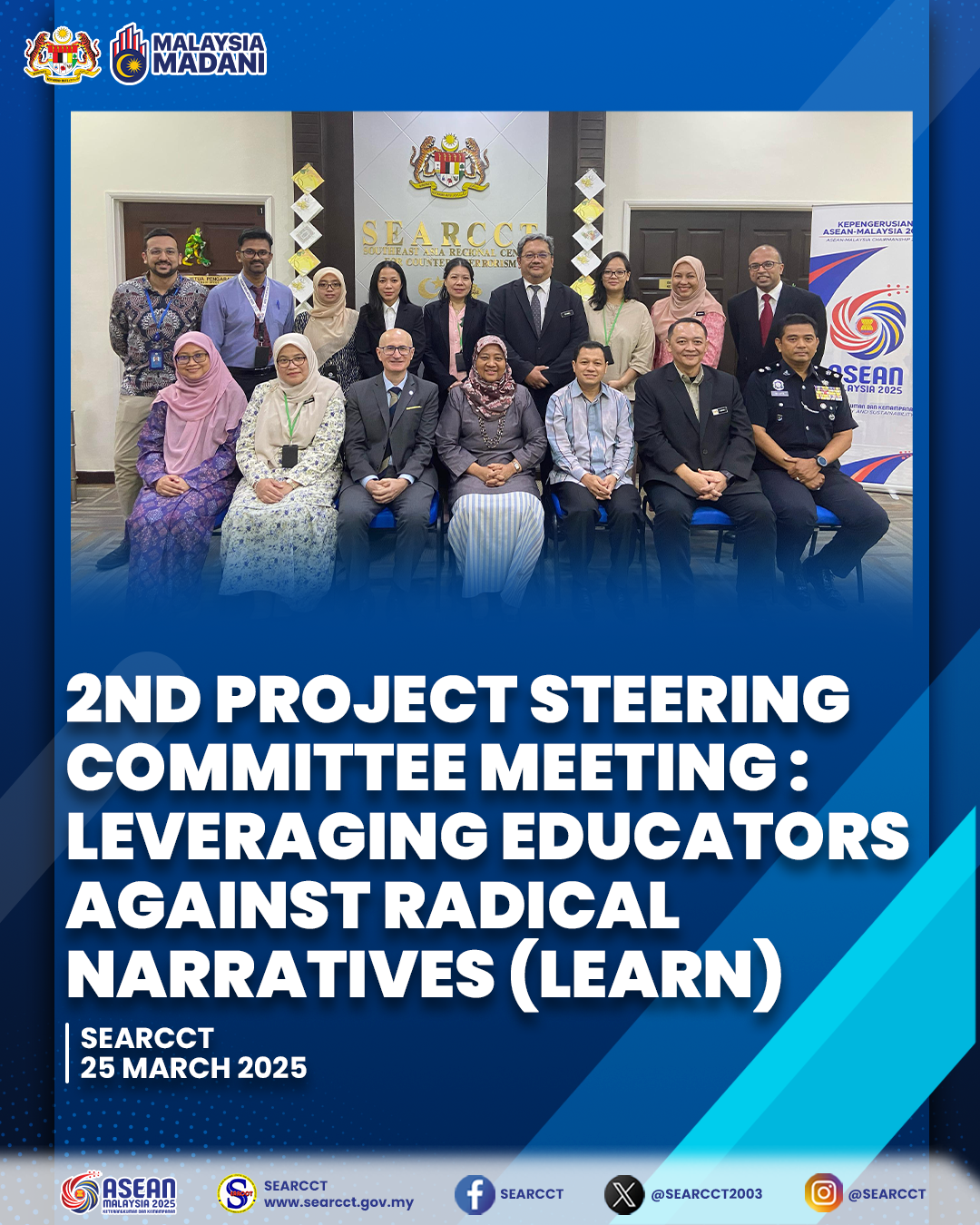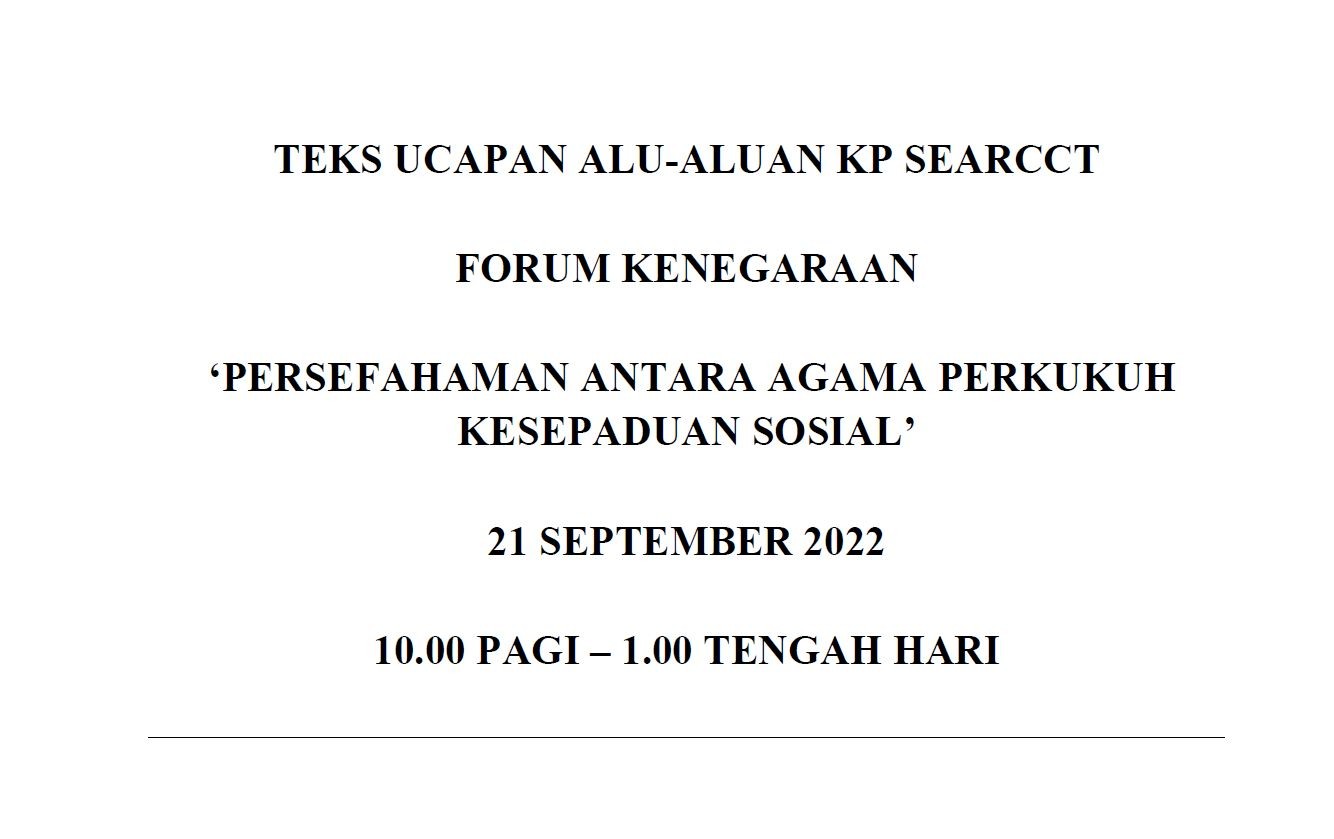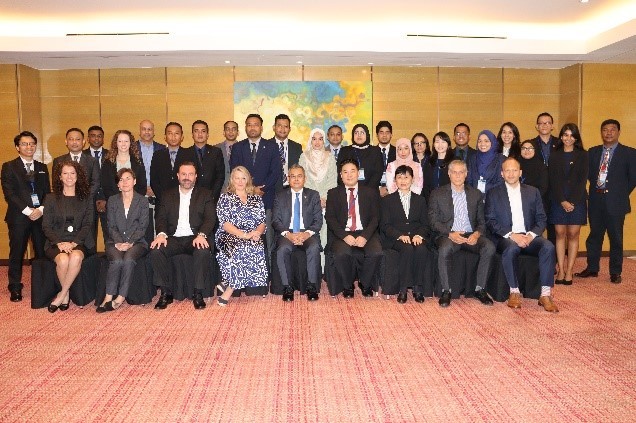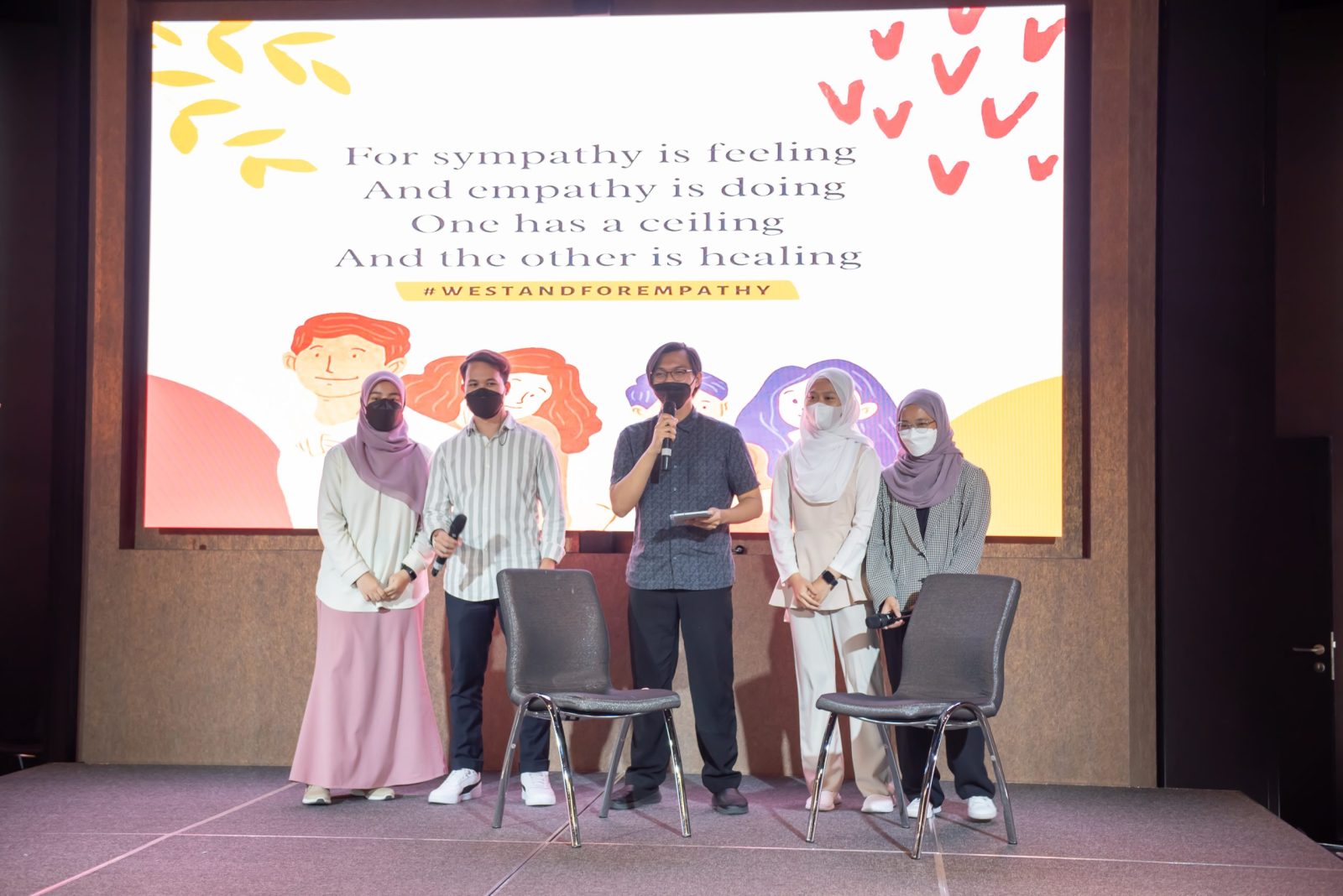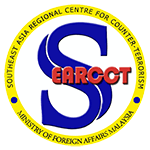On the 20th May 2022, the Digital Strategic Communications Division (DSCD) organised a ‘hybrid’ dialogue with an academic expert in the field of cyber security, Dr. Robert Hercock.
Over the last three decades, Malaysia has joined the rest of the world in embracing rapid digital and technological advancements. As of January 2022, Malaysia’s internet penetration rate stands at 89.6 percent of our total population of 33 million. A bulk of them are also active users of social media. This is a remarkable feat that can be attributed to advancements in broadband connectivity and making the internet more accessible and affordable to users.
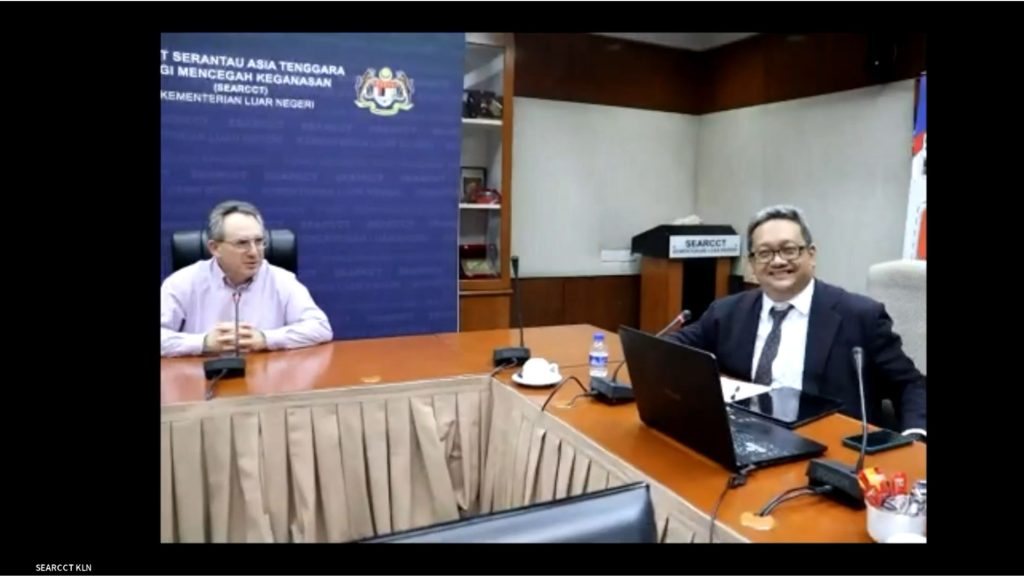
However, as well as all know, anything that is connected within cyberspace is also exposed to many risks. Our digital footprints, which include the storage of personal data and sensitive information online, can easily be exploited by hackers and other criminal syndicates. The targets of cyber-attacks these days are often critical infrastructures and vital state assets that can be crippled in an instant. Without the proper tools and policies to mitigate this threat, governments would be extremely vulnerable to cyber-attackers. At the individual level, hundreds of internet users in Malaysia fall prey to online fraud and scams every year, many of them losing their life’s savings as a result.
It is for this reason that Malaysia has recognised cybersecurity as a top national priority. In 2020, the government launched Malaysia’s Cybersecurity Strategy 2020-2024 with the Vision of “fortifying local capabilities to predict, detect, deter and respond to cyber threats through structured governance, nurturing competent people, supporting best practice processes and deploying effective technologies”. Similarly, cybersecurity remains a key focus area of the country’s Foreign Policy Framework that was launched last year, alongside other areas such as the digital economy, peaceful coexistence, and Sustainable Development Goals (SDGs). Additionally, the focus on cybersecurity is also directly connected to SEARCCT’s own work in countering terrorism. Today’s terrorists and violent extremists have discovered new ways to exploit the borderless digital world to spread their ideology and recruit followers. Their activities in cyberspace are hard to detect, and they are now able to plan deadly attacks from anywhere in the world, relying on their radicalised followers to execute their plan. Enhanced cybersecurity measures should therefore be a component of any contemporary counter-terrorism strategy, as it can halt terrorist messaging, recruitment, and financing efforts.
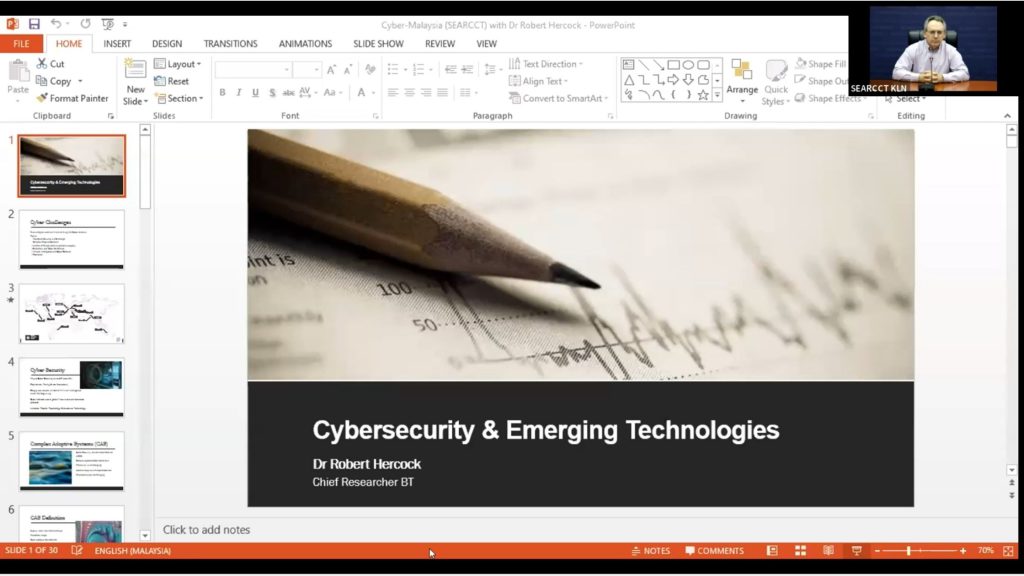
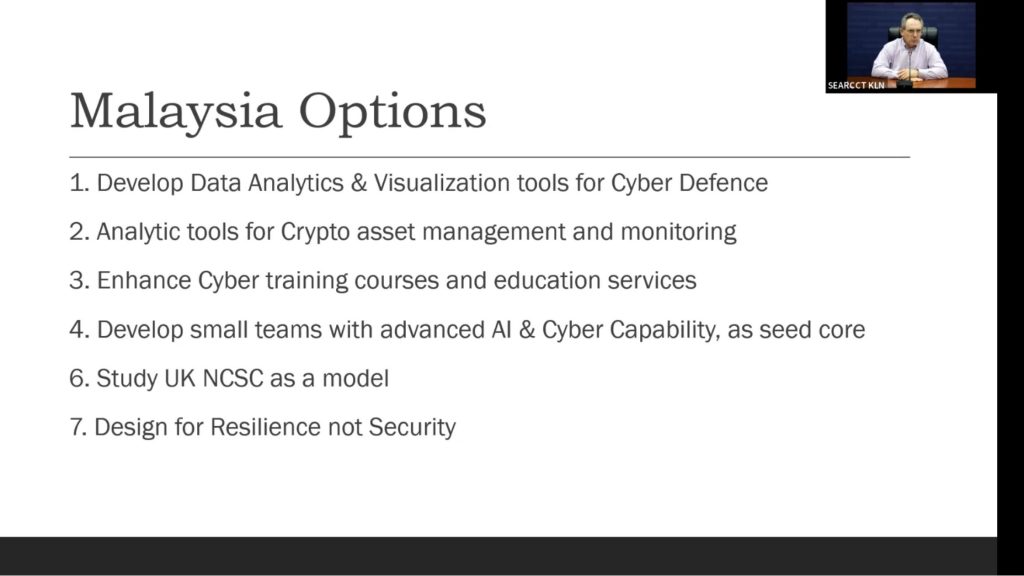
Therefore, to facilitate the sharing of expertise by an international expert who can benefit government and non-government officials working in the field of cybersecurity in Malaysia, we invited Dr. Robert Hercock to deliver a talk entitled ‘Cybersecurity and Emerging Technologies’ at SEARCCT. Dr. Hercock, the Chief Research Scientist at British Telecommunication, has more than 2 decades of experience in Data Analytics, A.I, Cybersecurity & Defence technologies.
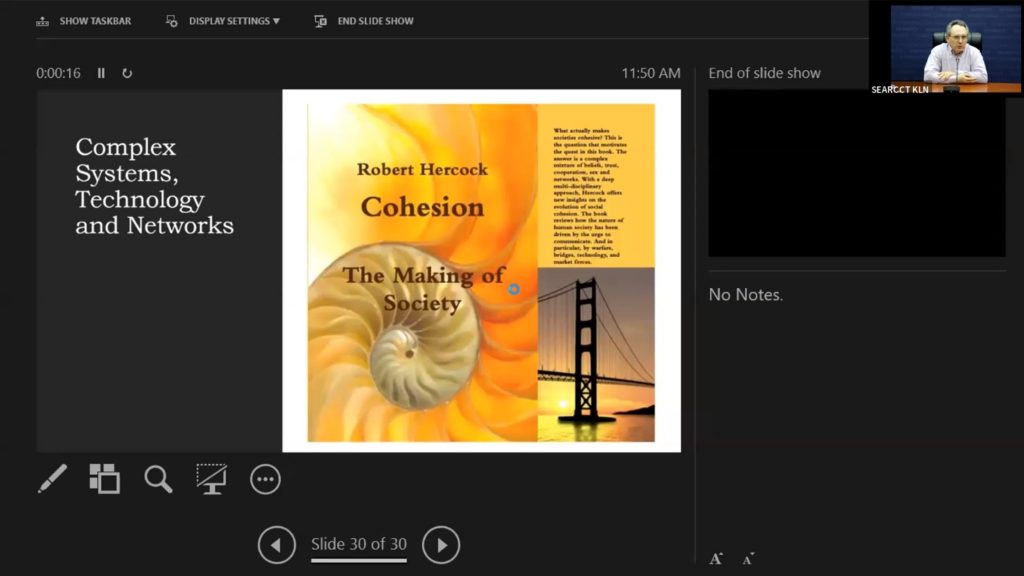
The half-day dialogue session involved participation from ministries and government agencies as well as other stakeholders in the field of cybersecurity nationwide participating virtually while Dr. Hercock delivered his presentation and answered cybersecurity and emerging technologies-related questions physically from SEARCCT. The dialogue platform was also used to discuss current issues and challenges that are closely related to technological developments and their implications for cybersecurity.

